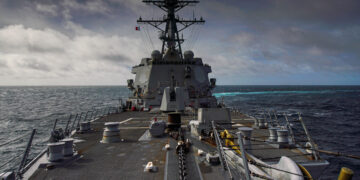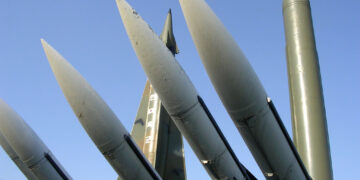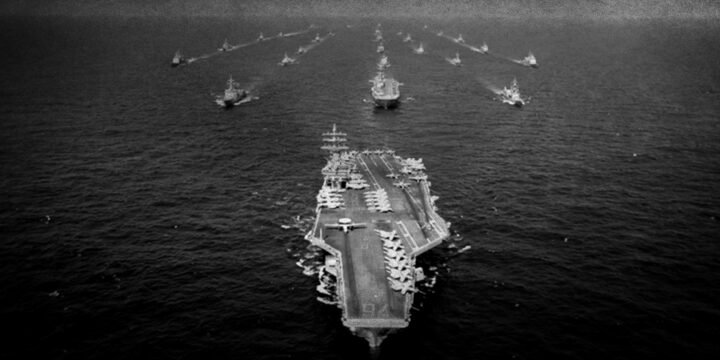January 26, 2024
China is trying to have it both ways in the Middle East
and_others_during_Japan-U.S.-Canada-France_Multilateral_Exercise_Noble_Typhoon.jpg)
There has been plenty of hand-wringing in the West about the prospect of China displacing — or at least rivaling — the United States as the world’s leading superpower. But the evolving security crisis in the Red Sea makes clear that this remains a distant prospect.
China, with a trade-led economy dependent on the free flow of commerce through chokepoints like the Bab el-Mandeb strait off Yemen, relies on the United States to protect international sea lanes. The U.S.-led military response to the Houthi militia attacks on international shipping may not ultimately be the answer to the current crisis — the Houthis, so far, appear undeterred — but the United States has at least demonstrated a clear commitment to keeping open vital trade routes that connect China to the Middle East and Europe.
Rather than acting like the global leader it purports to be, China has made no appreciable move to shoulder the costs or risks of ensuring security in the Red Sea, despite having its sole declared overseas military base in Djibouti, adjacent to the strait. Nor has it publicly offered a viable alternative to America’s actions. Instead, it seems content to largely sit back and offer veiled criticism of the U.S. military response.
Beijing is playing a cynical game, free-riding on the same American power that it holds in contempt, trying to have it both ways.
Read article in The New York Times
Author

Jennifer
Kavanagh
Senior Fellow & Director of Military Analysis
More on Asia

Featuring Jennifer Kavanagh
March 10, 2025

Featuring Jennifer Kavanagh
February 26, 2025

By Jennifer Kavanagh and Stephen Wertheim
February 25, 2025





